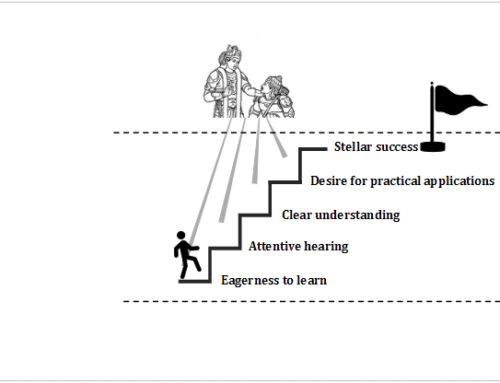Many self-help teachers recommend mindfulness – cultivating awareness and living in the present. Certainly, mindfulness is better than absent-mindedness, but is it sufficient? Let’s analyze with an example of driving.
Being unmindful is like driving inattentively, not knowing where we are going and how we are driving – it’s unfruitful and unsafe. Becoming mindful while driving is definitely better, but still it doesn’t make driving fully fruitful. For that, we need to know our destination and the way to get there.
Similarly, to make mindfulness fully fruitful, we need to know the purpose of life itself and the means to achieve it. Gita wisdom explains that purpose – we are at our core spiritual beings meant to love the supreme spiritual being, Krishna, and delight eternally therein. And it reveals the best means: bhakti-yoga.
As long as we are spiritually uninformed, we remain under the sway of our material attachments. So, even if we achieve mindfulness, we become better aware of material things, but not of spiritual things.
To spiritualize our mindfulness, we need to see the connection of the material with the spiritual, to link the things of this world with their ultimate source. In the Bhagavad-gita (10.17), Arjuna seeks such guidance. In response, Krishna throughout the remaining chapter illustrates the concluding philosophical principle (10.41): the world’s attractive things, things that we are often mindful of, manifest a spark of his all-attractiveness. To realize this principle, we need to practice bhakti-yoga, for it sensitizes us to Krishna’s presence and helps us become mindful of him.
The more we diligently practice bhakti-yoga and become attracted to Krishna, the more our heart becomes permeated with his presence, and everything stimulates his remembrance. Thus, we rise from being mindful to being mindful of Krishna to ultimately making our mind full of Krishna.

Explanation of article:
Podcast


Very nice title once again !! Haribol !!
“..we can see the attractive things in this world as manifestations of his all-attractiveness.” …There are certain things in this world which are not good for a devotee but those are attractive. It appears little difficult to think those attractive things as manifestations of His attractiveness. Maharaj, Could you please elaborate more on this?
Answered here:
http://www.thespiritualscientist.com/2015/02/are-all-attractive-things-good-for-devotees-of-the-all-attractive/
ys
ccdas
Thank you Maharaj for spending time on my question. Answer definitely gives me better vision to see at those things in the world. Hari bol !!